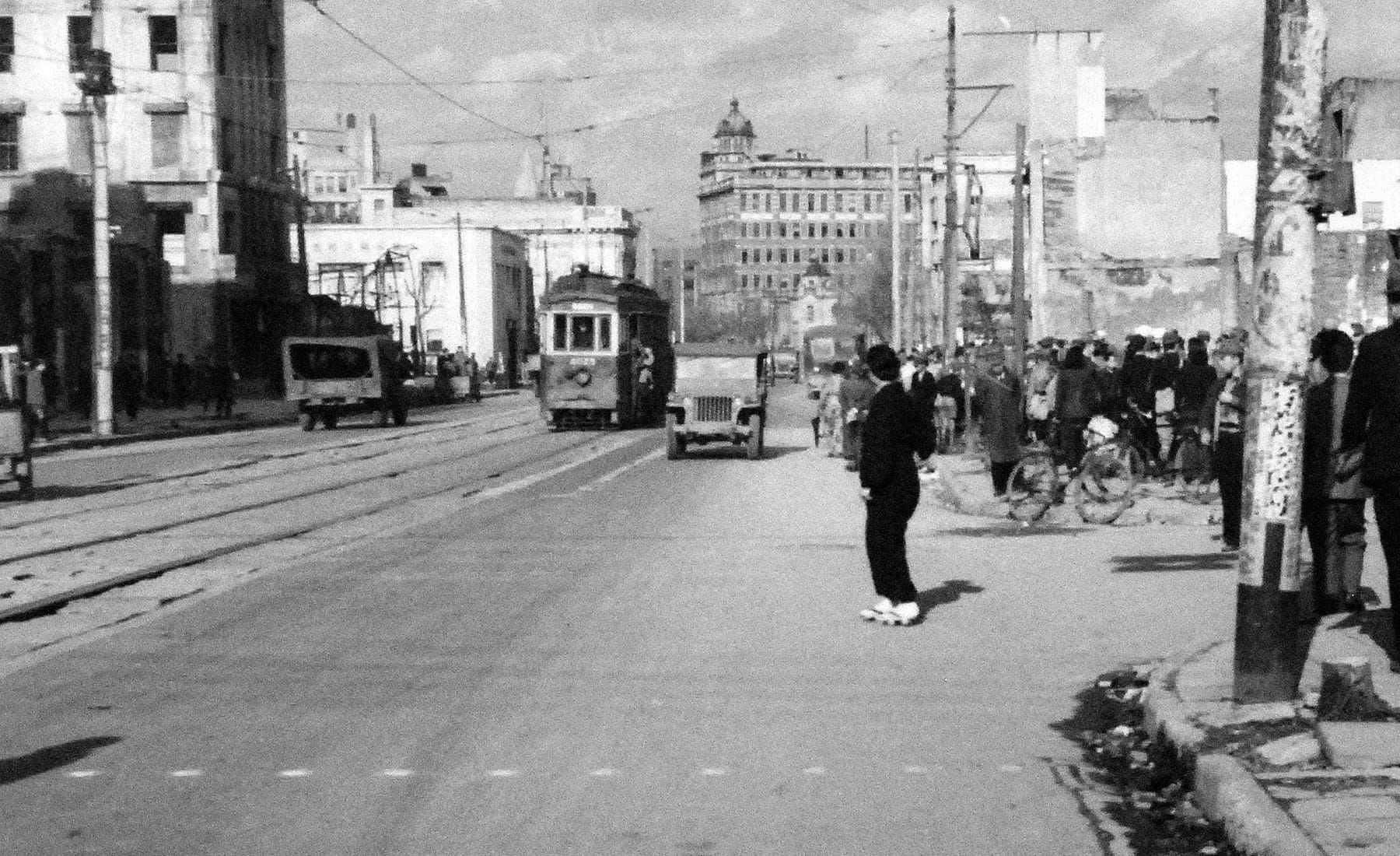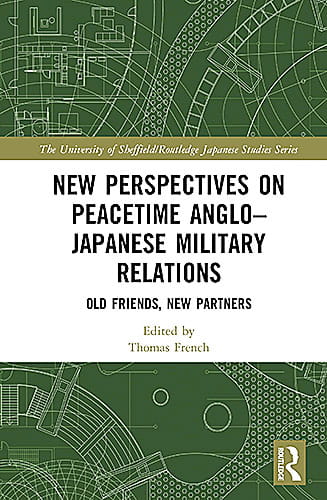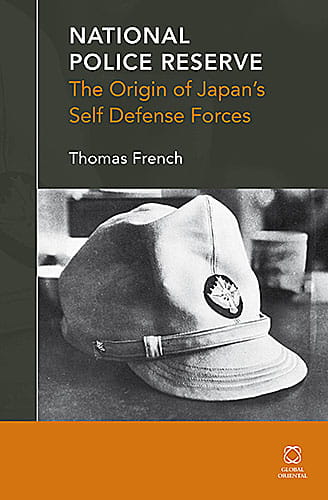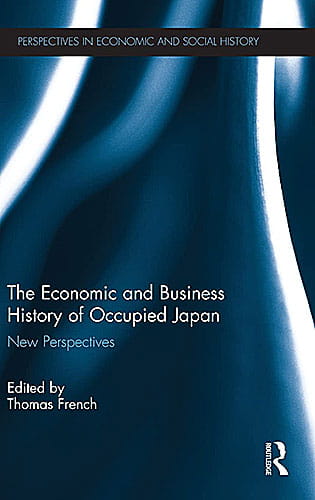Japan under the Allied Occupation
What happened in Japan during the Allied Occupation?
How does it affect present-day Japan?

FRENCH Thomas WilliamProfessor, College of International Relations
The Occupation influenced Japanese people’s identity,
gave rise to new religions, and changed the educational curriculum
Your research mainly concerns Japan under the Allied Occupation. Can you tell us about it?
French Many parts of the world today are experiencing upheaval, discord, and armed conflict. I believe that when considering how to rebuild society following such experiences, important what happened in Japan after World War II can be an interesting example. To understand Japan’s postwar history, it’s essential to know what happened during the Allied Occupation. I pursue in-depth research into Occupation-era Japan, drawing on large volumes of primary documents as well as interviews.
Japan was profoundly affected both directly and indirectly by the Occupation, and experienced change across many areas, including government, economy, and culture. The one of the most significant among these was surely the Constitution of Japan. The Occupation also influenced the Japanese people’s identity, and many new religions were established. The educational curriculum was also transformed. These impacts have persisted through to the present.
Dietary habits also changed significantly during the Occupation, and those changes have also continued to this day. The Wiener sausages that people today often eat for breakfast were imported in huge quantities from the United States during the Occupation. People didn’t know how to prepare them, so recipes were introduced on the radio and publicized by Japanese people working for the Occupation forces. The pasta dish known in Japan as “Napolitan” is also said to have originated when the Supreme Commander of the Allied Powers, Douglas MacArthur, visited a hotel, and the chef concocted a dish from the limited ingredients immediately at hand.

Many of the systems and lifestyle habits that changed during the Occupation have continued right through to today
French That’s correct, but there are also many things we know today that had existed prior to 1945 but changed under the influence of the Occupation. One example is off-road vehicles. Vehicles manufactured in Japan prior to the war performed poorly and were not fit for export. The manufacture of passenger cars was banned by the Japanese government during the war when the focus was on trucks. The Occupation forces made use of army vehicles known as “jeeps,” manufactured by the US firm Willys. Before the Occupation ended, the Japanese government engaged automotive companies to develop off-road vehicles that could be used easily by Japanese people and would serve the needs of the National Police Reserve, a predecessor of today’s Self-Defense Forces. One of the vehicles developed at that time was the Toyota Jeep, a four-wheel drive that utilized the body of a compact truck model that had been mass-produced during wartime. This was the prototype for what we now know as the Toyota Land Cruiser.
This was a high-performance, made-in-Japan military vehicle inspired by the US Army jeeps and created using massive funds gained from the Korean War boom, but unfortunately, it was never adopted by the National Police Reserve. However, this outcome prompted Toyota to transform the vehicle gradually into an off-road vehicle suited to everyday use. Eventually, its drivability and ease of servicing made it popular even in the United States, and it became a global export success. In other words, an indirect impact of the Occupation led Japan’s automotive industry, which had been weak in prewar times and even up to the early 1950s, to produce an enduring bestseller that took the world by storm.

We can build a more stable
Japan-Europe relationship
if Europeans learn modern Japanese history and understand the situation in Japan
Why did you choose to do research on Japan’s Occupation?
French One of my father’s friends was a historian of Japan. There were many of his books in our home, so I became interested in the country. I took History with Japanese studies at Royal Holloway, University of London, and studied for a year at a university in Kyoto, which is heaven for anyone interested in Japanese history. It was a really important experience for me, and I learned a lot about life in Japan.
I started doing research on the Occupation when I was a Master’s student. As I investigated Japan’s security arrangements, I became aware that there was no fixed consensus regarding the early history of the Self-Defense Forces or the National Police Reserve, so that’s what I decided to focus on.
What do you think is the significance of someone from the UK doing research on Japan’s modern history?
French I’m neither Japanese nor American so I can distance myself to an extent from those two positions and pursue my research on some topics from a different standpoint. Sadly, the world today is plagued by numerous problems, and war is on the rise. As a result, states are entering into more and more international alliances and partnerships in the security field. It’s well known that even the UK and Japan are deepening their collaboration on things like joint development of next-generation fighter aircraft.
Japan currently has a robust security relationship with the United States, but I expect it to build more partnerships with Europe going forward. Europe though needs to understand Japan’s modern history better. I believe that we’ll be able to build more secure relationships if more people understand what today’s Japan can and cannot do, and why there are lingering diplomatic issues between Japan and its neighbors. Through my research on Japan’s modern history, I hope to contribute to widening a greater understanding of Japan’s diplomacy and security, and ultimately, to world peace.
Could you tell us about your seminar class?
French There are roughly even numbers of international students, returnee students, and students who have lived in Japan for their whole lives. Everybody brings their own experience and contributes diverse opinions on our topics on the history and politics of the modern world. This way we can learn together about the history of numerous countries. This seminar gives shape to internationalization in a very real sense.
Topics are decided by ballot among the students themselves. This semester, we’re looking at the history of ‘Bushido’ and the myths surrounding it, but each semester, we learn collectively about a different topic, such as the history of the Imperial Japanese Army, the ‘Pacific War’, the history of fascist thought, and the Cold War era. I advise students to engage with primary materials as far as possible and to avoid using today’s ideas to evaluate the past as far as possible. The people on the stage of historical events are not present-day people: they lived in their own, usually much tougher, times, and their ‘common sense’ reflected those times. This is something I think we should never lose sight of.
For Those Interested in Japan under the Allied Occupation: BOOKS
Thomas French
New Perspectives on Peacetime Anglo–Japanese Military Relations: Old Friends, New Partners
Routledge(2025年)

Thomas French
National Police Reserve: The Origin of Japan’s Self Defense Forces
Brill Academic Pub(2014年)

Thomas French
The Economic and Business History of Occupied Japan: New Perspectives
Routledge(2017年)
